| Listing 1 - 10 of 14 | << page >> |
Sort by
|
Book
ISBN: 9780300115475 0300115474 Year: 2009 Publisher: New Haven Yale university press
Abstract | Keywords | Export | Availability | Bookmark
 Loading...
Loading...Choose an application
- Reference Manager
- EndNote
- RefWorks (Direct export to RefWorks)
- The unmaking of a modern revolution - Rethinking revolutions - Going Dutch: the transformation of English society - English politics at the accession of James II - The ideology of Catholic modernity - The practice of Catholic modernity - Resistance to Catholic modernity - Popular revolution - Violent revolution - Divisive revolution - Revolution in foreign policy - Revolution in political economy - Revolution in the church - Conclusion - Assassination, association, and the consolidation of revolution - Conclusion: the first modern revolution
Great Britain --- History --- Historiography. --- Social aspects. --- History of the United Kingdom and Ireland --- anno 1600-1699 --- Grande-Bretagne --- Histoire --- Historiographie --- Aspect social --- Historiography --- Social aspects
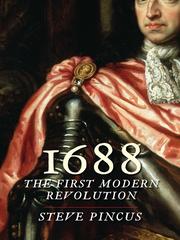
ISBN: 1282352601 9786612352607 0300156057 9780300156058 0300115474 9781282352605 9780300115475 6612352604 Year: 2009 Publisher: New Haven : Yale University Press,
Abstract | Keywords | Export | Availability | Bookmark
 Loading...
Loading...Choose an application
- Reference Manager
- EndNote
- RefWorks (Direct export to RefWorks)
For two hundred years historians have viewed England's Glorious Revolution of 1688-1689 as an un-revolutionary revolution-bloodless, consensual, aristocratic, and above all, sensible. In this brilliant new interpretation Steve Pincus refutes this traditional view.By expanding the interpretive lens to include a broader geographical and chronological frame, Pincus demonstrates that England's revolution was a European event, that it took place over a number of years, not months, and that it had repercussions in India, North America, the West Indies, and throughout continental Europe. His rich historical narrative, based on masses of new archival research, traces the transformation of English foreign policy, religious culture, and political economy that, he argues, was the intended consequence of the revolutionaries of 1688-1689.James II developed a modernization program that emphasized centralized control, repression of dissidents, and territorial empire. The revolutionaries, by contrast, took advantage of the new economic possibilities to create a bureaucratic but participatory state. The postrevolutionary English state emphasized its ideological break with the past and envisioned itself as continuing to evolve. All of this, argues Pincus, makes the Glorious Revolution-not the French Revolution-the first truly modern revolution. This wide-ranging book reenvisions the nature of the Glorious Revolution and of revolutions in general, the causes and consequences of commercialization, the nature of liberalism, and ultimately the origins and contours of modernity itself.
HISTORY / Europe / Great Britain / General. --- Great Britain --- History --- Historiography. --- Social aspects.
Book
ISBN: 0300224443 9780300224443 9780300216189 0300216181 Year: 2016 Publisher: New Haven, Connecticut
Abstract | Keywords | Export | Availability | Bookmark
 Loading...
Loading...Choose an application
- Reference Manager
- EndNote
- RefWorks (Direct export to RefWorks)
An eye-opening, meticulously researched new perspective on the influences that shaped the Founders as well as the nation's founding document From one election cycle to the next, a defining question continues to divide the country's political parties: Should the government play a major or a minor role in the lives of American citizens? The Declaration of Independence has long been invoked as a philosophical treatise in favor of limited government. Yet the bulk of the document is a discussion of policy, in which the Founders outlined the failures of the British imperial government. Above all, they declared, the British state since 1760 had done too little to promote the prosperity of its American subjects. Looking beyond the Declaration's frequently cited opening paragraphs, Steve Pincus reveals how the document is actually a blueprint for a government with extensive powers to promote and protect the people's welfare. By examining the Declaration in the context of British imperial debates, Pincus offers a nuanced portrait of the Founders' intentions with profound political implications for today.
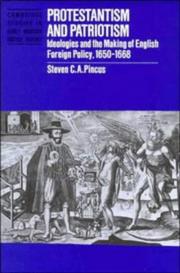
ISBN: 0521434874 0521893682 0511560788 Year: 1996 Publisher: Cambridge : Cambridge University Press,
Abstract | Keywords | Export | Availability | Bookmark
 Loading...
Loading...Choose an application
- Reference Manager
- EndNote
- RefWorks (Direct export to RefWorks)
Protestantism and Patriotism offers a fundamental reinterpretation of English political culture between 1650 and 1668. It is also both the most detailed study to date of the causes and consequences of the first two Anglo-Dutch Wars (1652-1654 and 1665-1667), and a configuration of the English political nation which engaged in those two conflicts. Professor Pincus argues that it is impossible to understand the making of English foreign policy in this period without a careful study of its ideological contexts, while at the same time suggesting that accounts of English domestic politics which ignore the ideological implications of England's place in European political culture are impoverished. Because of the broad context in which the Anglo-Dutch Wars are situated, the book will appeal not only to specialists in English foreign policy but to all those interested in seventeenth-century English and Dutch politics and culture.
Christianity and politics --- Patriotism --- Protestant churches --- Protestantism. --- History --- Arts and Humanities --- Great Britain --- Foreign relations --- Christianity --- Church history --- Reformation --- Loyalty --- Allegiance --- Protestant sects --- Christian sects --- Protestantism --- Church and politics --- Politics and Christianity --- Politics and the church --- Political science --- Political aspects
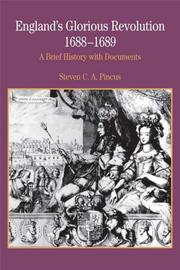
ISBN: 0312167148 1403971544 9780312167141 Year: 2006 Publisher: Boston (Mass.) : Bedford/St. Martin's,
Abstract | Keywords | Export | Availability | Bookmark
 Loading...
Loading...Choose an application
- Reference Manager
- EndNote
- RefWorks (Direct export to RefWorks)
Book
Year: 2011 Publisher: Cambridge, Mass. National Bureau of Economic Research
Abstract | Keywords | Export | Availability | Bookmark
 Loading...
Loading...Choose an application
- Reference Manager
- EndNote
- RefWorks (Direct export to RefWorks)
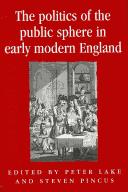
ISBN: 9780719053177 Year: 2007 Publisher: Manchester Manchester university press
Abstract | Keywords | Export | Availability | Bookmark
 Loading...
Loading...Choose an application
- Reference Manager
- EndNote
- RefWorks (Direct export to RefWorks)
Book
Year: 1996 Publisher: Cambridge New York Cambridge University Press
Abstract | Keywords | Export | Availability | Bookmark
 Loading...
Loading...Choose an application
- Reference Manager
- EndNote
- RefWorks (Direct export to RefWorks)
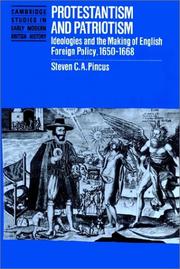
ISBN: 9780511560781 9780521434874 9780521893688 Year: 1996 Publisher: Cambridge Cambridge University Press
Abstract | Keywords | Export | Availability | Bookmark
 Loading...
Loading...Choose an application
- Reference Manager
- EndNote
- RefWorks (Direct export to RefWorks)
Book
ISBN: 9780719053184 Year: 2012 Publisher: Manchester : Manchester University Press,
Abstract | Keywords | Export | Availability | Bookmark
 Loading...
Loading...Choose an application
- Reference Manager
- EndNote
- RefWorks (Direct export to RefWorks)
Civil society --- Civil society --- Political culture --- Political culture --- History --- History --- History --- History
| Listing 1 - 10 of 14 | << page >> |
Sort by
|

 Search
Search Feedback
Feedback About UniCat
About UniCat  Help
Help News
News